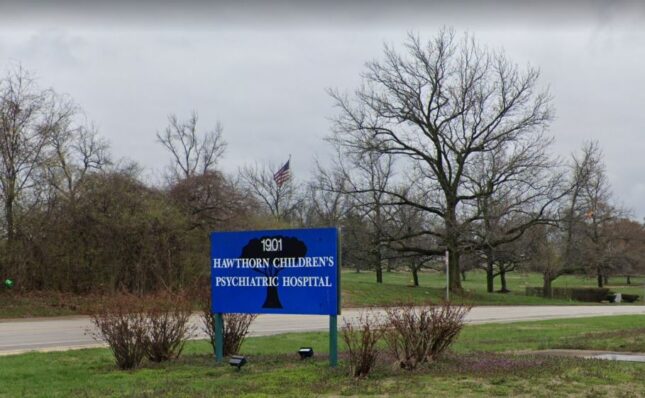
General Inpatient Child and Adolescent Psychiatry at
Hawthorn Children’s Psychiatric State Hospital
Number of Fellows per Rotation: 1
Length of Rotation: 10.2 weeks
Year of Rotation: First-year

Location:
Hawthorn Children’s Psychiatric Hospital
1901 Pennsylvania Ave.
St. Louis, MO 63133
(314) 512-7800
Goal
To provide first-year fellows with in-depth exposure to the evaluative and treatment modalities used in intensive inpatient child and adolescent psychiatry.
Objectives
To develop competence in the following areas:
The nature of patient care at Hawthorn is interdisciplinary.
- Assessing patients admitted from emergency room settings
- Conducting patient and family-centered evaluations of severe disorders
- Observing and interpreting family relationships and their pertinence to the child’s presenting problems
- Appreciating the role of the family in the assessment and treatment regardless of the age of the patient
- Producing differential diagnosis and dynamic case formulation of psychiatric symptomatology and appreciating the importance of biologic, psychologic, and socio-cultural aspects of symptoms
- Becoming familiar with psychopharmacological and psychotherapeutic approaches to severe disorders
- Understanding behavior modification and level systems in treatment
- Planning dispositions for return as an outpatient or less restrictive care system
The fellow will gain medical knowledge through a combination of supervised clinical activities, mandatory divisional didactics, and supervised reading of pertinent or related literature.
- Knowing the strengths and limitations of the current DSM diagnostic criteria
- Understanding the appropriate use of laboratory testing
- Understanding the appropriate use of adjunct medical consultation
In addition to supervised clinical activities and self-initiated and suggested readings, the fellow will participate in 1:1 supervision by faculty at Hawthorn and other divisional supervision including individual and team supervision.
- Continuing to appraise oneself of current knowledge concerning the pathogenesis and etiology of psychiatric disorders
- Becoming familiar with the appropriate use of psychological testing
- Gaining administrative experience in ward management
- Appreciating historical, cultural, legal, and ethical aspects of inpatient child/adolescent psychiatry
The fellow will demonstrate sensitivity and compassion to children, adolescents, and their families/caretakers affected by serious psychopathology and will continue to develop relationships with other professionals or professionals in training, including supervisors, colleagues, students, and allied professionals.
- Developing intra-professionally by managing their emotional reactions to severe youth psychopathology
- Demonstrating the ability to function as a cooperative member of a multi-disciplinary therapeutic team
- Demonstrating a commitment to continued professional development
The fellow will effectively communicate with patients, their families/caretakers, and all other members of the treatment team.
- Conducting age-appropriate interview techniques, as well as comprehensive mental status examinations on children and adolescents
- Talking with and obtaining a history from patients, family members, and all others involved in the caretaking system of the patient (DFS social worker, teacher, etc.)
- Presenting cases succinctly and accurately
- Understanding the roles of other mental health professionals including psychologists, nursing staff, social workers, educational therapists, activity therapists, etc.
- Interacting with social and legal agencies in the management of child/adolescent psychiatric disorders
Measurement of Objectives
- Standard program evaluations
- Multisource feedback
- Clinical skills examinations
Description of Rotation
The General Inpatient Child and Adolescent Psychiatry Rotation at Hawthorn Children’s Psychiatric Hospital exposes fellows to a broad variety of developmental problems, youth psychopathology, and the full range of treatment modalities used to treat inpatients including pharmacotherapy, behavior modification, family therapy, group therapy, milieu therapy, and psychodynamic therapy.